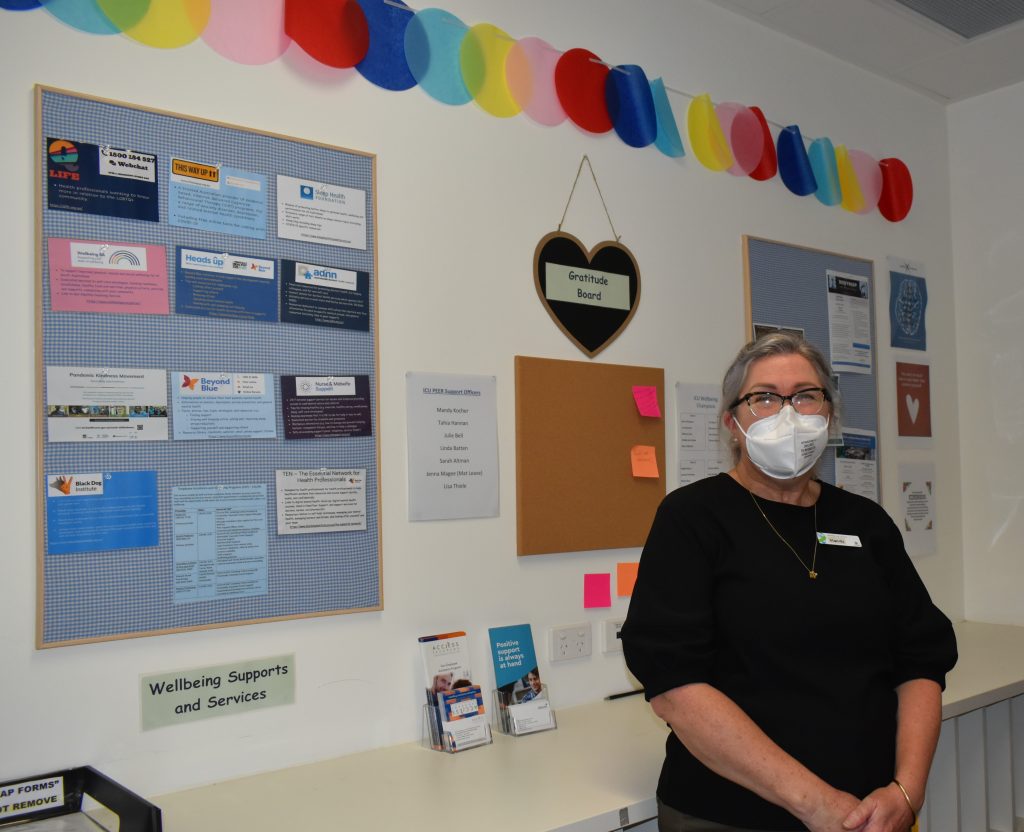Central Adelaide has launched a Peer Support Officer Program, where trained peers with similar experiences can support their colleagues both emotionally and practically.
The program, in use across the South Australian Public Sector has been initially rolled out within the Clinical Care and Perioperative team at both the Royal Adelaide Hospital and The Queen Elizabeth Hospital.
How Peer Support Officers can help
Peer Support Officers can provide employees with a supportive, non-judgemental, and confidential ear when they feel at their most vulnerable and need to talk. They can be used together with support from managers, Workforce and other services.
To become an officer, employees undergo training such as Mental Health First Aid and the Foundations in Peer Support online module. This module covers topics including active listening, how to have a difficult conversation and assessing risk.
Benefits of peer support
Clinical Nurse and Peer Support Officer, Mandy works in ICU at the RAH and says the program is important in helping to assist a workforce that works in a very dynamic, technical, and stressful environment.
“We often meet people experiencing incredible distress and trauma, and it’s a very emotional and physically taxing area to work.
“It’s pivotal to our mental and ultimately physical health that we are supported by, and in our workplace. The PSO inclusion will add another layer of worker mental health support to our arsenal. There is nothing like debriefing with someone who truly understands,” she says.
“No person is better placed to understand the intricacies of our environment, the situations we encounter, and the people and personalities involved that our peers.”
The PSO program has 18 officers in the CC & PO area, but they are also supported by a larger group of wellbeing champions.
These are individuals, many of whom have completed training as Mental Health First Aid Officers or are actively involved and invested in the wellbeing of their colleagues.
Associate Nurse Unit Manager Amelia says that peer support is more important than ever, allowing staff from all different levels, units and experience to provide colleagues with support.
“This program has provided an opportunity for staff with a focus on wellbeing to put their hand up and let their colleagues know that they are happy to help and lend an ear to listen.
“At TQEH we often work very closely within our department and with each other and the peer support program allows staff to reach out to officers within different departments. This is particularly helpful if staff are needing to chat to someone separate from their own working unit.”



